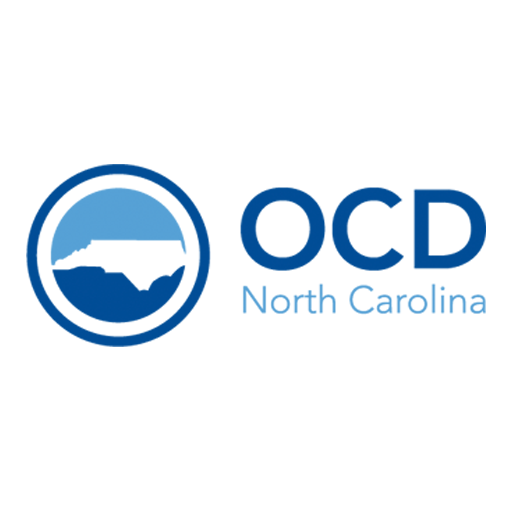Finding Help for OCD
by Kevin L. Gyoerkoe, Psy.D.
Obsessive-Compulsive Disorder (OCD) is one of the most common types of mental illness. The National Institute of Mental Health (NIMH) estimates that OCD afflicts about 2-3 million adults and about 500,000 children in the United States every year. In addition, NIMH reports that about 50% of OCD cases are classified as “severe”. Yet, despite the number of people suffering from OCD in the US, many looking for effective help treatment have difficulty finding it. For example, the IOCDF reports that it takes the average person 14-17 years to get a proper diagnosis and appropriate treatment for OCD. The good news is effective treatment is available. In this article, you’ll learn more about what OCD is and how to find help.
What is OCD?
As the name suggests, Obsessive-Compulsive Disorder is a disorder that consists of two main symptoms, obsessions and compulsions:
Obsessions are unwanted, intrusive thoughts, images or urges that cause feelings of anxiety, doubt, and distress. For example, if you suffer from contamination OCD, you may experience persistent and unwanted thoughts that things are contaminated in some way. In checking OCD, you experience persistent thoughts of doubt regarding the completion of an action (such as unplugging the iron or turning off the stove)
Compulsions are repetitive, ritualistic behaviors that serve the purpose of reducing the distress triggered by obsessive thoughts. If you have contamination OCD, for instance, you’ll likely engage in frequent hand washing, cleaning, or other decontamination rituals to cope with intrusive contamination thoughts. For checking OCD, you’ll engage in repeated checking rituals to reduce the distress caused by doubt.
There are many different types of OCD. Common types of OCD include:
- Contamination
- Scrupulosity
- Harm
- Sexual
- Relationship
- Symmetry/Completeness/Just right
How is OCD Treated?
The two main treatment approaches to OCD are Cognitive Behavioral Therapy (CBT) and medication. Effective CBT targeting OCD will include a skill set Exposure and Response Prevention (ERP). In ERP, you gradually approach the objects of your fears while refraining from engaging in compulsions. For example, if you suffer from a fear of germs, you might gradually practice coming into contact with safe but seemingly “dirty” things while resisting the urge to wash your hands. This approach, systematically facing your fears while resisting compulsions, is highly effective. Studies consistently show a 60-80% improvement in OCD symptoms after ERP with a trained CBT therapist.
Medication is another effective approach for treating OCD. The most commonly used medications for OCD are a group of antidepressants known as SRI’s (such as Prozac, Celexa, and Zoloft). Other kinds of medications are sometimes used as well to augment SRI’s, such as a group of medications known as the atypical antipsychotics (ie., Risperdal, Abilify, and Zyprexa). In terms of success in reducing symptoms, studies show about a 40-60% response rate to medication for OCD.
How do I find help for OCD?
There are several options to find effective help for OCD. Below, you’ll find three places to start: online resources, OCD support groups, and self-help books.
Online resources
A trained therapist can properly diagnose OCD and offer effective treatment. To help you find a qualified therapist in your area, there are several searchable databases that list therapists who specialize in treating OCD. Excellent resources to start your search include:
- The International OCD Foundation
- The Anxiety and Depression Association of America
- The Association for Behavioral and Cognitive Therapies
- The Academy of Cognitive Therapy
- Psychology Today
When choosing a therapist, it can be helpful to ask questions to make sure the therapist is a good fit for you. Some questions you might ask include:
- What is your training in treating OCD?
- How many cases of OCD have you treated?
- How much of your current practice is dedicated to OCD?
- Do you use Exposure and Response Prevention to treat OCD?
- Will you go out of the office to do exposures if indicated?
In addition to searching for a therapist, you can also find a wealth of information online about OCD in general. A great place to start is the International OCD Foundation’s website.
Support Groups
OCD support groups can be a helpful source of information about OCD as well as emotional support as you get treatment. Support groups in your area are often listed under the IOCDF Affiliate page. Check your local affiliate’s website for listings of support groups in your area.
Self-Help Books
Many terrific self-help books about overcoming OCD are on the market today. These books can be of tremendous help if you are suffering from OCD and seeking help. A good self-help book can not only help you lay the foundation for effective treatment, it can also provide you with exercises to guide you in treating your OCD.
Excellent self-help books for OCD include:
- Getting Over OCD: A 10 Step Workbook for Taking Back Your Life, by Jonathan Abramowitz, Ph.D.
- Freedom from Obsessive-Compulsive Disorder: A Personalized Recovery Program for Living with Uncertainty, by Jonathan Grayson, Ph.D.
- Freeing Your Child from Obsessive-Compulsive Disorder, by Tamar Chansky, Ph.D.
- The OCD Workbook: Your Guide to Breaking Free from Obsessive-Compulsive Disorder, by Bruce Hyman, Ph.D., LCSW and Cherry Pedrick, RN
- Talking Back to OCD: The Program that Helps Kids and Teens Say “No Way”—and Parents Say “Way to Go”, John March, MD, MPH and Christine Benton
OCD is a common and treatable mental illness, but finding effective treatment can be difficult. However, by finding a good therapist, getting support through a support group, and supplementing your treatment with OCD self-help books, you can experience a significant reduction in your symptoms and get the help you need to overcome OCD.
